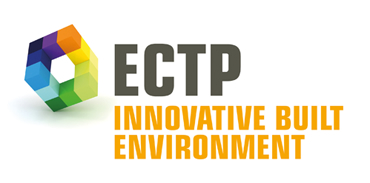The building sector is one of the key enablers to achieve low carbon economy goals for 2050. To deliver this potential, buildings need to transform from passive isolated elements to smart buildings. Over the period 2021-2023, the SmartBuilt4EU project has supported the emergence of a smart buildings market in Europe. In addition to promoting exchanges between innovators, the project has nurtured a large stakeholders community in promoting and testing the Smart Readiness Indicator (SRI).
Throughout the SmartBuilt4EU project, 12 White Papers were written by 4 task forces, with a focus on the following main fields of investigation: 1) Interaction with users, 2) Efficient building operation, 3) Interactions with the external environment and 4) Crosscutting issues. In each of the white papers, barriers and drivers were analysed in order to identify R&I gaps in different topics, such as R&D, scaling up and industrialisation, regulation, among others.
> Task force 1: Interactions with users
- End user acceptance and attractiveness: solutions to improve end-user acceptance and adoption of smart building functionalities
- Occupant-centric building for enhanced quality of life: integrating smart solutions for enhanced well-being, inclusiveness and health of occupants
- Responsive end-user
> Task Force 2: Efficient building operation
- Interoperability among building components & systems
- Optimised building costs: Integrating tools for optimised costs over full life cycle (incl. BIM, digital twin, predictive maintenance, AI, weather forecast, predictive control)
- Smartness to reduce building’s environmental impacts
> Task Force 3: Interactions with the external environment
- Providing flexibility to power grids: data interoperability to provide flexibility to the electricity grid
- Smart building as enabler of new energy practices and communities: Smart buildings & electromobility; Local Energy communities, Energy efficiency
- Data driven indicators for smart buildings
> Task Force 4: Crosscutting issues
- Financing and business models: new services, financing & business models (incl. Building as a Service), integration of new technologies (Blockchain)
- Data governance, security and privacy: Cyber-security; Data privacy & protection
- Education and upskilling
The resulting white papers have been the basis for the SmartBuilt4EU Strategic Research Innovation Agenda (SRIA) and the SB4EU Policy Recommendations aiming to feed the design of future potential Horizon Europe calls.
Throughout the project, relevant smart technologies have been displayed divided in packages according to their impacts and analysed with the support of modelling and simulation. These considerations in combination with a co-benefit analysis and the promotion and training material are the backbone of the work done in the project to support the SRI assessment value, by providing inspiration and benchmarking, demonstrating the added value of smart technologies, promoting the SRI score coupled with the co-benefits as means of assessment of the building smartness.
A series Smart Building solution packages for residential and office buildings were defined, using as a reference the Smart Readiness Indicator (SRI) method A simplified service catalogue. These solution packages are a combination of smart services implemented at different functionality levels, targeting specific built environment impact areas: 1) Energy efficiency; 2) Comfort, health and well-being; 3) Smart grid readiness; 4) Informed users.
One of the outputs of the definition and analysis of these 8 Smart Building solution packages is a set of so-called Smart Building Technical Sheets. The objective is to highlight the multiple impacts of implementing smart technologies on the building performances in terms of SRI score and added values.
Access here a zip file with a list of pdf templates that collect sets of technology solutions and a "read me" guide for smart buildings, which can be used by those interested in promoting these technologies.
Link to KPIs database: https://kpidb.eurac.edu/
Link to Success Stories here
Links to to the recordings of the awareness sessions on the SRI:
FR Session d’information sur les travaux menés autour de l’indicateur SRI
IT Sessione informativa sullo Smart Readiness Indicator (SRI)
ES Sesión informativa sobre el nuevo indicador, SRI, de la UE para el Potencial de Inteligencia de los Edificios












